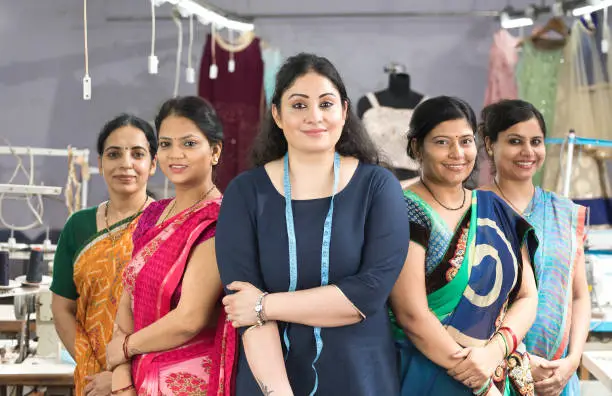In the landscape of Indian television, where traditional gender roles often dominate narratives, “Jeet Gayi Toh Piya Morey” emerges as a refreshing series that fearlessly tackles the theme of women empowerment. This Indian TV series about women not only entertains but also educates, shedding light on the struggles and triumphs of women in a patriarchal society.
Buy Airtel Broadband with exciting benefits!
Devi: A Protagonist Who Defies Stereotypes
At the heart of “Jeet Gayi Toh Piya Morey” is Devi Chauhan, a character who embodies resilience and determination. Forced into an unwanted marriage with Adhiraj Rajawat, Devi refuses to accept her fate as a submissive wife. Instead, she resolves to transform her husband and assert her individuality.
Devi’s journey is a reflection of the challenges faced by countless women in India who are pressured to conform to societal expectations. Her refusal to tolerate domestic violence and her unwavering pursuit of her rights make her a powerful symbol of women empowerment in Indian women dramas.
Challenging Gender Norms Through Storytelling
“Jeet Gayi Toh Piya Morey” fearlessly addresses sensitive issues such as forced marriages, domestic abuse, and gender inequality. By showcasing Devi’s battles against these deeply entrenched norms, the series encourages viewers to question and challenge the status quo.
The show’s narrative aligns with other groundbreaking Indian women dramas like “Udaan” and “Balika Vadhu,” which have also boldly tackled themes of women’s rights and empowerment. By bringing these critical issues to the forefront, “Jeet Gayi Toh Piya Morey” contributes to the ongoing conversation about gender equality in Indian society.
A Mirror for Society
One of the strengths of “Jeet Gayi Toh Piya Morey” lies in its ability to serve as a mirror for contemporary Indian society. The series reflects the real-life struggles and aspirations of women who are fighting for their rights and striving to break free from oppressive societal norms.
Through its relatable characters and authentic storytelling, the show resonates with viewers, particularly women who see their own experiences mirrored in Devi’s journey. This emotional connection makes “Jeet Gayi Toh Piya Morey” not just entertainment but also a powerful tool for social change.
Empowering Messages and Inspirational Characters
Beyond Devi, “Jeet Gayi Toh Piya Morey” features a cast of strong female characters who challenge stereotypes and inspire viewers. From Devi’s aunt Rekha, who supports her niece’s fight for justice, to Adhiraj’s sister-in-law Urmi, who navigates her own struggles, the show presents a diverse range of women who refuse to be defined by their circumstances.
These Jeet Gayi Toh Piya Morey characters serve as role models, encouraging women to stand up for themselves, pursue their dreams, and resist societal pressures. By showcasing their resilience and determination, the series sends a powerful message about the importance of empowering women in all aspects of life.
Behind the Scenes: Crafting a Socially Relevant Series
The success of “Jeet Gayi Toh Piya Morey” in championing women empowerment can be attributed to the dedication and vision of its creators. Directors Amit Gupta, Randip Mahadik, and Neeraj Panday, along with writers Jay Mehta and Kinnari Mehta, have crafted a series that not only entertains but also educates and inspires.
Through meticulous research and a deep understanding of the societal issues at hand, the creative team has woven a narrative that authentically represents the experiences of women in India. Their commitment to telling socially relevant stories has elevated “Jeet Gayi Toh Piya Morey” from a mere television show to a platform for change.
The Power of Television in Driving Social Change
“Jeet Gayi Toh Piya Morey” exemplifies the potential of television as a medium for driving social change. By bringing stories of women empowerment into the living rooms of millions of viewers, the series contributes to shifting societal perceptions and attitudes towards gender roles and equality.
As more Indian TV series about women follow in the footsteps of “Jeet Gayi Toh Piya Morey,” the collective impact of these narratives can be significant. By normalizing strong, independent female characters and challenging outdated beliefs, these shows have the power to inspire real-life change and contribute to the ongoing fight for gender equality in India.
In an era where entertainment is just a click away, Airtel Broadband offers viewers the opportunity to access empowering content like “Jeet Gayi Toh Piya Morey” with ease. With high-speed internet and reliable connectivity, Airtel Broadband ensures that viewers can stream their favorite shows without interruptions, allowing them to fully immerse themselves in the inspiring stories of women empowerment.
“Jeet Gayi Toh Piya Morey” stands as a shining example of women empowerment TV in India. Through its powerful narrative, relatable characters, and socially relevant themes, the series has carved a niche for itself in the landscape of Indian women dramas. As it continues to inspire and empower viewers, “Jeet Gayi Toh Piya Morey” serves as a reminder of the transformative power of storytelling in driving social change and championing gender equality.
FAQs
1. What is the central theme of “Jeet Gayi Toh Piya Morey”?
The central theme of “Jeet Gayi Toh Piya Morey” is women empowerment, as it follows the journey of Devi Chauhan, who defies societal norms and fights for her rights.
2. How does “Jeet Gayi Toh Piya Morey” challenge gender stereotypes?
“Jeet Gayi Toh Piya Morey” challenges gender stereotypes by portraying Devi as a strong, resilient character who refuses to be defined by traditional gender roles and societal expectations.
3. What other Indian TV series tackle similar themes of women empowerment?
Other Indian TV series that tackle themes of women empowerment include “Udaan,” “Balika Vadhu,” and “Na Aana Is Des Laado,” among others.
4. How does “Jeet Gayi Toh Piya Morey” reflect contemporary Indian society?
“Jeet Gayi Toh Piya Morey” reflects contemporary Indian society by addressing real-life issues faced by women, such as forced marriages, domestic violence, and gender inequality.
5. What role does television play in driving social change?
Television plays a significant role in driving social change by bringing important issues into the public consciousness, challenging societal norms, and inspiring viewers to take action towards equality and justice.



